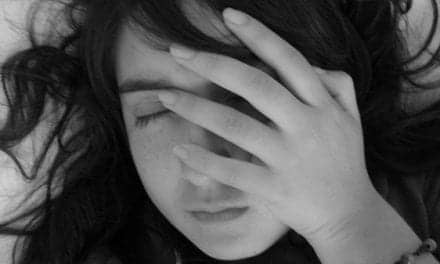Insufficient sleep can dramatically impact your subjective age, making you feel as much as 10 years older than you actually are.
Summary: Stockholm University researchers have found that insufficient sleep can make individuals feel significantly older, with sleep deprivation adding up to a subjective age increase of ten years. Their studies demonstrated that each night of inadequate sleep could make participants feel 0.23 years older, and sleep restriction over two nights resulted in feeling 4.4 years older. These findings underscore the critical role of sleep in maintaining a youthful sense of self and suggest that improving sleep quality could enhance overall well-being and health-promoting behaviors.
Key Takeaways:
- Participants felt, on average, 0.23 years older for each night of insufficient sleep in the past month.
- After restricting sleep to just four hours per night over two nights, individuals felt an average of 4.4 years older compared to when they had sufficient sleep.
- The study highlights a correlation between sleepiness and subjective age, with extreme sleepiness adding an estimated 10 years to how old participants felt.
Feeling sleepy can make you feel 10 years older. Researchers at Stockholm University have discovered that sleep affects how old you feel. The study is published in the scientific journal Proceedings of the Royal Society B.
Do you ever find yourself longing for the energy and vitality of your younger years? Feeling young is not just a matter of perception—it is actually related to objective health outcomes. Previous studies have shown that feeling younger than one’s actual age is associated with longer, healthier lives. There is even support for subjective age to predict actual brain age, with those feeling younger having younger brains.
“Given that sleep is essential for brain function and overall well-being, we decided to test whether sleep holds any secrets to preserving a youthful sense of age,” says Leonie Balter, a researcher at the Department of Psychology at Stockholm University, in a release.
Discovering Sleep’s Role in Age Perception

In the first study, 429 individuals aged 18 to 70 were asked how old they felt, how many days in the past month they had not gotten enough sleep, and how sleepy they were. It turned out that for each night with insufficient sleep in the past month, participants felt on average 0.23 years older.
In a second study, the researchers tested whether it was indeed the lack of sleep causing participants to feel older. Therefore, they conducted an experimental sleep restriction study involving 186 participants aged 18 to 46. Participants restricted their sleep for two nights—only four hours in bed each night—and another time slept sufficiently for two nights, with nine hours in bed each night.
After sleep restriction, participants felt on average 4.4 years older compared to when having enjoyed sufficient sleep. The effects of sleep on subjective age appeared to be related to how sleepy they felt. Feeling extremely alert was related to feeling 4 years younger than one’s actual age, while extreme sleepiness was related to feeling 6 years older than one’s actual age.
“This means that going from feeling alert to sleepy added a striking 10 years to how old one felt,” says Balter in a release.
She says the implications for our daily lives are clear: “Safeguarding our sleep is crucial for maintaining a youthful feeling. This, in turn, may promote a more active lifestyle and encourage behaviors that promote health, as both feeling young and alert are important for our motivation to be active.”
Photo 159868825 © Prostockstudio | Dreamstime.com





